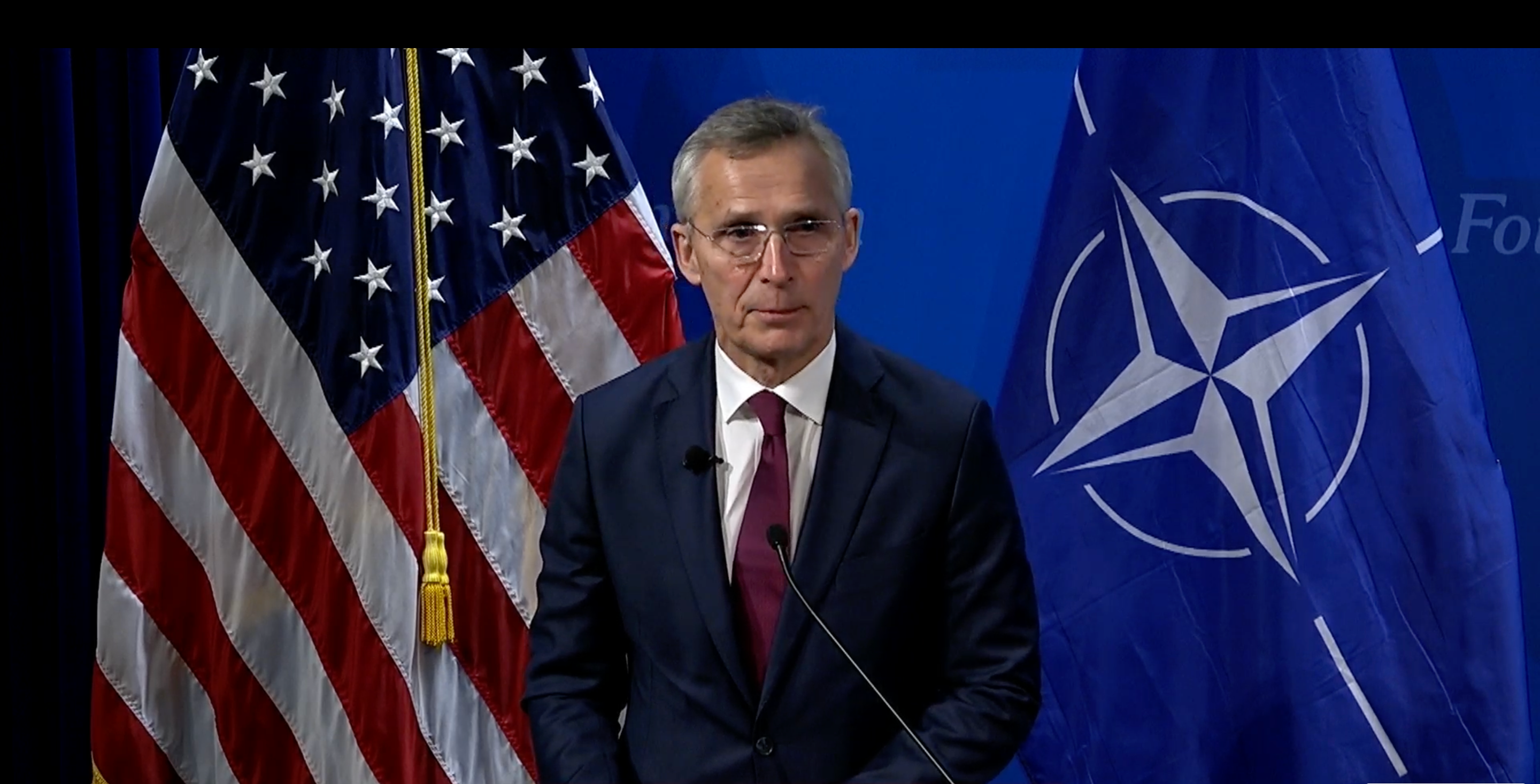NATO chief Jens Stoltenberg has had a busy week in Washington. After meeting with Pentagon officials on Monday, the former Norwegian prime minister sat down with congressional leaders on Tuesday to emphasize his support for a new Ukraine aid package.
But Stoltenberg’s biggest appointment may have come Wednesday, when he took to the stage at the influential Heritage Foundation — a newly minted home for Ukraine skeptics on the right — and made an impassioned plea for continued aid to Kyiv.
“You seek to advance the interest of American citizens and stand up for ideas that strengthen America and the fundamental values that underpin this great democratic nation: freedom, opportunity, and prosperity,” the NATO leader said. “Today, these values are under attack by malign foreign actors seeking to undermine them.”
Stoltenberg’s speech took aim at a range of arguments that have gained purchase on the right over the past year. His pitch is clear: Ukraine aid is a cheap way to create U.S. jobs, kill Russian soldiers, and keep the war away from NATO’s borders.
Europe has provided more than its fair share of support to Ukraine, he argues, noting that the continent has given Kyiv at least $100 billion since the war began. And, Stoltenberg added, around half of NATO allies spent at least 2% of GDP on their military last year, marking progress on a long-held U.S. demand. He also emphasized that NATO has a key role in confronting a rising China — music to the ears of many Beijing watchers on the right.
Add to that the fact that European states have invested billions of dollars in the U.S. economy by purchasing new military hardware from American companies. Stoltenberg reminded the audience that his next stop is a Lockheed Martin factory in Alabama, where American workers are producing Javelin missiles for European buyers.
The NATO chief’s arguments had a palpable urgency to them — little surprise given that the odds of Congress passing new Ukraine funding seem to be decreasing by the day. This, coupled with the fact that the European Union is facing its own struggles over future funding, risks leaving Ukraine to largely fend for itself against a far more powerful foe.
In Washington, the current logjam centers on a potential Senate deal to mollify GOP Ukraine skeptics by instituting a significant overhaul of U.S. immigration policy.
But any compromise that may find its way out of the Senate will likely meet greater resistance in the House, where Speaker Mike Johnson (R-La.) has made clear that new funding for Ukraine would require — at the very least — cuts to other government spending.
The institutional backbone for this strain of GOP thought is, of course, the Heritage Foundation itself. In a brief speech prior to Stoltenberg’s talk, Heritage President Kevin Roberts laid out his own views on the future of Ukraine aid.
“We will not support further funding for Ukraine unless it is military only, matched efficiently by European nations, is transparent and accountable, and follows a clearly articulated strategy for victory,” Roberts said. None of these suggestions are likely to be included in a Senate deal, highlighting the uphill battle facing Ukraine’s supporters.
“I want to be crystal clear,” he continued. “Heritage will not now nor ever support putting a foreign nation's border ahead of our own.” Roberts also slammed early reports of a potential border deal in the Senate, saying they “point to more disordered priorities and Washington games.”
The Heritage leader’s fiery comments suggest that Stoltenberg’s pleas may fall on deaf ears. But that didn’t stop the NATO chief from trying. When asked about NATO’s long-term strategy for the war, he said the goal is to ensure Ukraine’s survival as a state by inflicting such “high costs on Russia that they accept that they will not control Ukraine.”
This argument, while succinctly put, is unlikely to satisfy concerns from budget hawks and restrainers, who fear the possibility of open-ended conflict with sky-high costs. But, as Ukraine’s military capacity continues to degrade, only time will tell if Stoltenberg’s last-ditch effort proved persuasive.















